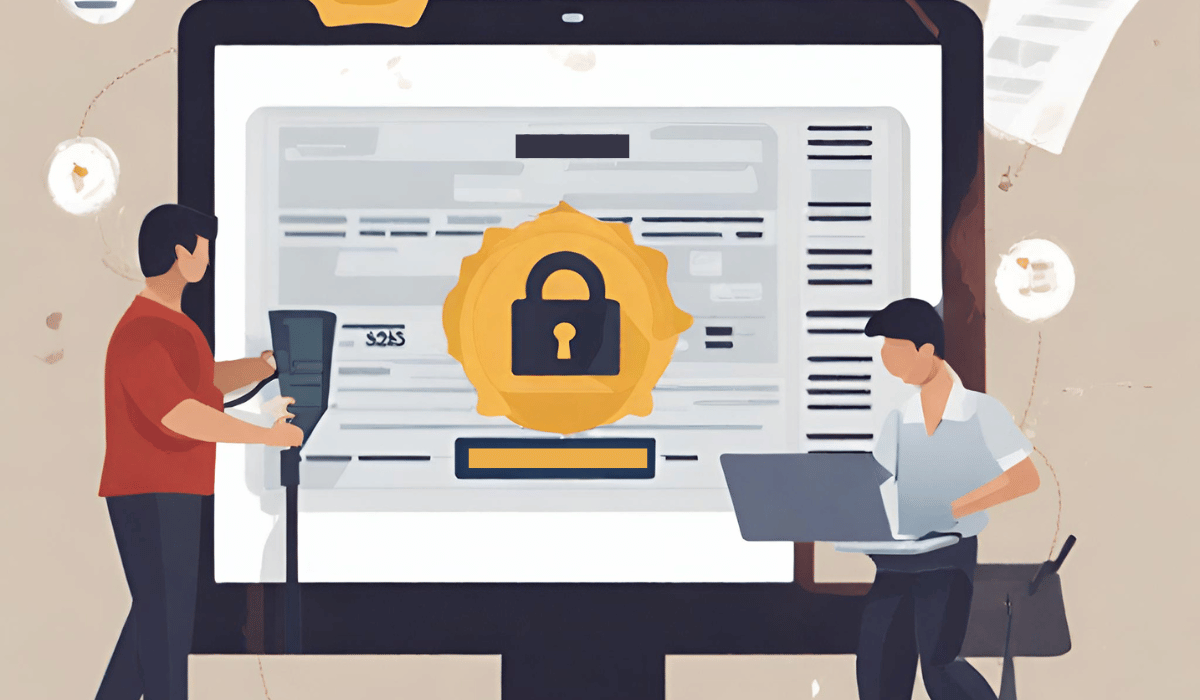Introduction
Social Security numbers (SSNs) are unique nine-digit identifiers assigned to individuals in the United States. They were first introduced in 1936 as part of the Social Security Act and have since become a crucial component of the American identification system. SSNs are used for a variety of purposes, including tax reporting, employment verification, and credit checks. In this article, we will explore what data is contained within SSNs and how they are used.
What Type Of Data Is A Social Security Number?

A Social Security Number (SSN) is a unique nine-digit identifier assigned to individuals in the United States. It contains no personal information such as name, date of birth, or address. Instead, it is a random number that is used to identify individuals for various purposes, including tax reporting, employment verification, and credit checks.
Anatomy Of A Social Security Number
The anatomy of a Social Security Number (SSN) can provide some insight into how it is used. The first three digits of an SSN are known as the Area Number and represent the geographical region where the individual was issued their SSN. The next two digits, known as the Group Number, are used to further identify the individual within that region. The final four digits, known as the Serial Number, are assigned sequentially and are used to distinguish one individual from another within the same region and group. Overall, the SSN is a crucial piece of information used for various purposes, but it should be kept confidential to prevent identity theft and other fraudulent activities.
The Information Contained In An SSN
The Social Security Number (SSN) contains important information about an individual, including their birthdate and geographic location. The first three digits, known as the Area Number, indicate the state or territory where the individual was issued their SSN. The next two digits, known as the Group Number, further identify the individual within that region. The final four digits, known as the Serial Number, distinguish one individual from another within the same region and group. It is important to keep the SSN confidential to prevent identity theft and other fraudulent activities.
First Three Digits
The first three digits of a social security number (SSN) indicate the state or territory where the individual was issued their SSN. Each state has its unique three-digit prefix, which is assigned based on the location of the Social Security Administration (SSA) office that issued the number. For example, numbers issued in California start with the digits 545-573, while numbers issued in New York start with the digits 050-134. Knowing the first three digits of an SSN can help identify where an individual was born or where they currently reside.
Middle Two Digits Or Group Numbers
The middle two digits of an SSN are known as the group numbers. These numbers are not assigned based on any geographical or other identifiable factors but rather are used for administrative purposes to help the SSA organize and manage the large number of SSNs that are issued. The group numbers range from 01 to 99, but certain numbers within that range are not used to avoid confusion with other administrative codes. For example, the numbers 00, 88, and 89 are not used as group numbers.
Last Four Digits Or Serial Numbers
The last four digits of a Social Security number are known as the serial numbers. These numbers are assigned in a specific order within each group number, starting with 0001 and going up to 9999. Serial numbers are used to distinguish between individuals who have been assigned the same group number. It’s important to note that the serial numbers do not have any special meaning or significance beyond this administrative purpose.
Additional Information Associated With SSNs
Social Security numbers (SSNs) are nine-digit identification numbers issued by the Social Security Administration (SSA) to U.S. citizens, permanent residents, and temporary residents. SSNs are used to track an individual’s earnings and work history for Social Security benefits, as well as for other government and financial purposes such as taxes, credit reports, and bank accounts. It’s important to keep your SSN safe and secure, as it can be used for identity theft if it falls into the wrong hands.
The Importance Of Protecting Your SSN
Social Security Numbers (SSNs) are a critical piece of personal information that should be kept safe and secure. They are used for a wide range of purposes, including employment, taxes, credit reporting, and government benefits. If someone gains access to your SSN, they can use it to steal your identity, open credit accounts in your name, and commit other types of fraud. To protect your SSN, it’s important to keep it confidential and never share it with anyone unless it’s necessary. Be cautious of phishing scams and unsolicited requests for your SSN, and make sure to shred any documents that contain your SSN before disposing of them.
You should also regularly monitor your credit reports and financial accounts for any suspicious activity, as this can be an early warning sign of identity theft. By taking these steps to protect your SSN, you can help prevent identity theft and protect your financial security.
SSNs In The Digital Age

In the digital age, protecting your SSN requires even more vigilance. Be cautious when sharing your SSN online, and only provide it to reputable and trusted sources. Make sure to use strong and unique passwords for all of your online accounts, and enable two-factor authentication whenever possible.
You should also be wary of scams that use your SSN as a way to trick you into giving away personal information or money. These scams can take many forms, including phishing emails, phone calls, and text messages. Always verify the identity of the person or organization requesting your SSN before providing it.
Finally, consider using a credit monitoring service that alerts you to any changes in your credit report or suspicious activity related to your SSN. This can help you catch identity theft early and minimize the damage.
Conclusion
Social Security Numbers (SSNs) are important personal identification numbers that are used for a variety of purposes, including accessing government benefits, credit reporting, and employment verification. It is important to protect your SSN from identity theft and fraud by keeping it secure and only sharing it when necessary. If you suspect that your SSN has been compromised, you should take immediate action to protect yourself by monitoring your credit reports and contacting the appropriate authorities. While changing your SSN is possible in limited circumstances, it can be a complex process and may not solve all of your problems related to identity theft. It is crucial to safeguard your Social Security Number (SSN) from identity theft and fraud. If you suspect that your SSN has been compromised, you should take swift action to protect yourself, such as monitoring your credit reports and contacting the appropriate authorities. Changing your SSN is possible but can be a complicated process and may not fully resolve identity theft issues.
Identity theft can be a stressful and overwhelming experience, but taking proactive measures to protect your personal information can help prevent it from happening in the first place. Be cautious when sharing your SSN and other sensitive information, and regularly monitor your credit reports and financial accounts for any suspicious activity. If you do become a victim of identity theft, seek help from reputable resources such as the Federal Trade Commission and credit reporting agencies. Remember, changing your SSN may not be a complete solution and should be considered carefully.
Frequently Asked Questions (FAQs)
What Should I Do If My SSN Is Stolen?
If you suspect that your SSN has been stolen, you should take immediate action to protect yourself from identity theft. You can start by contacting one of the three major credit bureaus (Equifax, Experian, or TransUnion) and placing a fraud alert on your credit report. This will notify lenders and creditors that they should take extra precautions to verify your identity before approving any new credit applications. You should also monitor your credit reports regularly for any unauthorized activity or accounts that you did not open. If you see anything suspicious, you should report it to the credit bureau and the relevant financial institution right away.
Additionally, you may want to consider freezing your credit reports, which will prevent anyone from opening new accounts in your name without your permission. Finally, be sure to report the theft to the Federal Trade Commission (FTC) and file a police report.
Can My SSN Be Used For Medical Identity Theft?

Yes, your Social Security number (SSN) can be used for medical identity theft. Medical identity theft occurs when someone uses your personal information, including your SSN, to receive medical treatment or services, obtain prescription drugs, or file fraudulent insurance claims. This can result in incorrect medical records, medical bills in your name, and even harm to your health if the thief’s medical information is added to your records. It’s important to monitor your medical bills and insurance statements for any suspicious activity and report any unauthorized charges or services to your healthcare provider and insurance company.
How Do I Find Out If Someone Is Using My SSN?
If you suspect that someone is using your Social Security number (SSN), there are several steps you can take to find out:
1. Check your credit report: You can obtain a free copy of your credit report from each of the three major credit bureaus (Equifax, Experian, and TransUnion) once a year. Look for any accounts or loans that you don’t recognize, as this could be a sign that someone has used your SSN to open credit in your name.
2. Monitor your accounts: Keep an eye on your bank accounts, credit card statements, and other financial accounts for any unauthorized transactions or withdrawals.
3. Set up fraud alerts: Contact one of the three major credit bureaus and request a fraud alert be placed on your credit report. This will alert lenders and creditors that they should take extra steps to verify your identity before extending credit in your name.
4. File a report with the Federal Trade Commission (FTC): If you believe that someone is using your SSN to commit fraud, file a report with the FTC at identitytheft.gov. This will help you create a recovery plan and take steps to prevent further damage.
It’s important to act quickly if you suspect that someone is using your Social Security number for fraudulent purposes. By following these steps, you can help protect yourself and prevent further damage to your credit and finances. Remember to also monitor your accounts regularly and report any suspicious activity to your financial institutions immediately.
Can I Change My SSN?
In general, it is very difficult to change your Social Security number (SSN). The Social Security Administration (SSA) only allows individuals to change their SSN in very limited circumstances, such as if they are experiencing significant harm or abuse due to their current SSN. If you believe that you qualify for a new SSN, you will need to contact the SSA and provide evidence of your situation. However, keep in mind that changing your SSN can be a complicated process and may not solve all of your problems related to identity theft or fraud.
